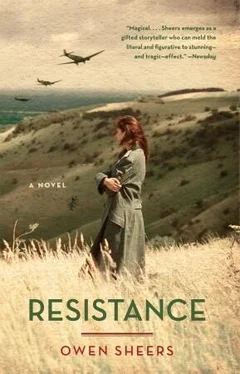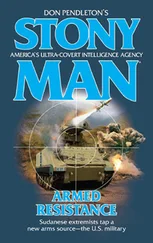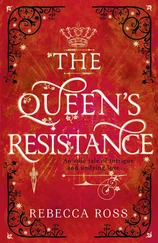Sebald, meanwhile, had visibly softened. The years of patching bits of men’s flesh together under fire had taken their toll, and he’d arrived in the valley as tightly wound as a spring. But over that winter, something loosened inside him. A keen amateur artist before the war, he began making sketches of the views around them and even of the other members in the patrol. It was as he was sketching Albrecht while he read beside the fire on the evening before the beginning of the thaw that Sebald first gave an indication that he might approve of Albrecht’s as yet unspoken plans.
“Did I ever tell you about Hermann?” Sebald said distractedly, not looking up from his sketchbook.
Albrecht paused in his reading. They were the only ones in the room. Gernot was whistling in the kitchen, Otto was on sentry duty, and Alex and Steiner were upstairs. “Hermann?” he said. “No, I don’t think you did.”
“A doctor I knew at the start of the war. Well, I only met him a few times really, taking men back to a château we were using as a holding hospital.” He paused, frowning over a patch of shading. “But I got on with him. Look back down, will you?” Albrecht did what he said, looking back down at the book, an English biography of the poet Walter Savage Landor, the stamp of the Bodleian Library faint inside its cover.
“We used to share a quick smoke while our boys were transferred. I’d give him the lowdown on them, which ones would be going home.” He stopped sketching and looked up from his pad. “I should have known then, I suppose. Every time I said that, ‘Seven tickets home in this lot, Hermann,’ that kind of thing, he’d look, well, terrible. Sick.”
“Should have known what?” Albrecht asked, looking up at Sebald.
Sebald went back to his sketching. “He was being asked to kill them.”
“Who?”
“Those boys with the home-ticket wounds. Hermann had been ordered to kill them. Bad for morale, apparently, seeing young men with no legs on Potsdamer. Hardly the Party’s ideal of blitzkrieg, is it?”
“I don’t understand; how do you know this?”
“It was all in his note,” Sebald said, licking his thumb to smudge the background of his sketch. “He cut his own throat.”
“Hermann?”
“Yes. He was a good soldier, you see. Followed orders. But he was a good doctor too. Injecting young men with lethal doses of morphine, well, he couldn’t do that. So he killed himself instead.”
“Cut his throat, you say?”
“Yes. I never understood that either.”
“Were other doctors ordered to kill wounded men?”
“Oh yes. But not many of them did. And not for long. The order was recalled. If only Hermann had waited. But he didn’t.”
Albrecht tried to catch Sebald’s eye, but he was still sketching. He didn’t know why he was telling him this.
“You think he was wrong?” Albrecht eventually asked.
Sebald glanced up from his pad. “Hermann? No, he was right, of course he was. But there were other ways around that order. You know how it is. There always are.” He went back to his sketch again but carried on speaking. “His duty was to his patients. They were worse off without him. He should have thought of them over himself.”
“But he was thinking of them, wasn’t he?”
Sebald looked directly at Albrecht, but into his eyes, not merely at his face as he had done for his drawing. “No,” he said. “He saved himself. He wasn’t saving them. Just himself.”
The next day the thaw gathered pace. The valley was both shrinking and expanding about them, the river swollen and the lanes flowing with water. It was a clear day, the sun burning warm in a blue sky. Albrecht knew he could wait no longer. That evening, bolstered by what he thought to be Sebald’s implicit approval, he gathered the whole patrol in The Court’s front room and told them.
In the end it was easier than he’d expected. He’d failed to appreciate how over the last three months the men under his command had come to trust him in a way he would never understand. He had also misjudged the effect upon all of them of time away from the war. No gunfire for months. No dugout sleeping, no crouching over your haunches emptying your bowels under mortar fire. And most importantly, no fear. No expectant death. Life had returned to them, the prospect of a continuing life after the war, and it was Albrecht who’d led them to this perspective. It was like a drug, and having tasted this hope, this expansion of the self through the years ahead, none of them was willing to give it up. None of them, except Steiner, whose voice was the first to break the silence in the room following Albrecht’s announcement. Made more confident by their conversations on the hillside, the young soldier spoke to Albrecht with a surprising directness.
“But wouldn’t that make us absent without leave, sir? That’s a court martial offence.” The other men all turned to look at Steiner, flickers of tension passing across their temples. Albrecht could sense their unspoken willingness to go along with his plans, but Steiner’s question was enough to plant a seed of uncertainty. An anxiety that they were disobeying a higher authority that would, one day, have its vengeance upon them. Albrecht tried to ease these worries, casting his and now what he hoped to be their shared intentions in the most innocent of lights.
“I am not,” he told them as they sat round The Court’s large table, “talking about disobeying orders of any kind. As you all know we have completed our mission here, and completed it well. No doubt at some point because of this, Western Headquarters will come looking for us soon enough. But until then all I am proposing is that we do not draw unnecessary attention to our presence here.”
He paused to cough into his hand, as if to demonstrate the strain and duress through which all of them had already put their bodies.
“We have fought well in this war, all of us.” He looked at Steiner, trying to tell him with his eyes as well as his words that he need not feel any guilt. “But now the war has changed. It is ending. A German victory is certain. Because of this I should tell you I feel my duty too has changed.” He glanced at Sebald but the medic was looking down at the table, arms folded. Had he misjudged their conversation the previous night? Even if he had it was too late now. “My duty is to you now,” Albrecht continued. “Not towards victory. We will still be vigilant, of course, but we will not be reckless. I truly believe it is in Germany’s greater interest that all of you return home to your families, your hopes, unharmed and alive.” He looked at Steiner again and was met by the young soldier’s frowning face, intent upon his every word. “They say London has fallen, but there are other cities. These people have their backs against the wall. I think we all know it will take longer than they say. I also know that every one of you, if you had to, would still fight, and fight well, if it was asked of you. But as yet, no one has asked you and until they do I see no reason why any of you should risk everything now, when we are so close and you have already given so much.”
He paused, allowing his last words to hang in the air.
“If any man does want to rejoin the regiment,” he concluded, sitting back in his chair, “that is, of course, his right and he would have my blessing. All I would ask is that he do so at no risk to the other members of this patrol.”
Albrecht had no idea how this could be done, but he felt it had to be said. That he had to leave a door apparently open, even if they all knew what he asked was impossible. The offer was unnecessary anyway. At the end of his speech, Steiner had looked towards Gernot. The two of them had become close over the last months. Steiner valued this friendship and admired Gernot’s lighter ease with the world. He looked up to him in many ways, and that was why, when Gernot gave the slightest of indications to Steiner that he agreed with his captain, Albrecht knew it would be all right. Gernot’s deepening interest in Bethan meant any concerns he might have about Albrecht’s intentions were eclipsed by more powerful desires. He would not leave the valley now unless he had to. And if Gernot stayed, so would Steiner.
Читать дальше












